Four Organizations Reaching Out to Make the Outdoors More Attainable
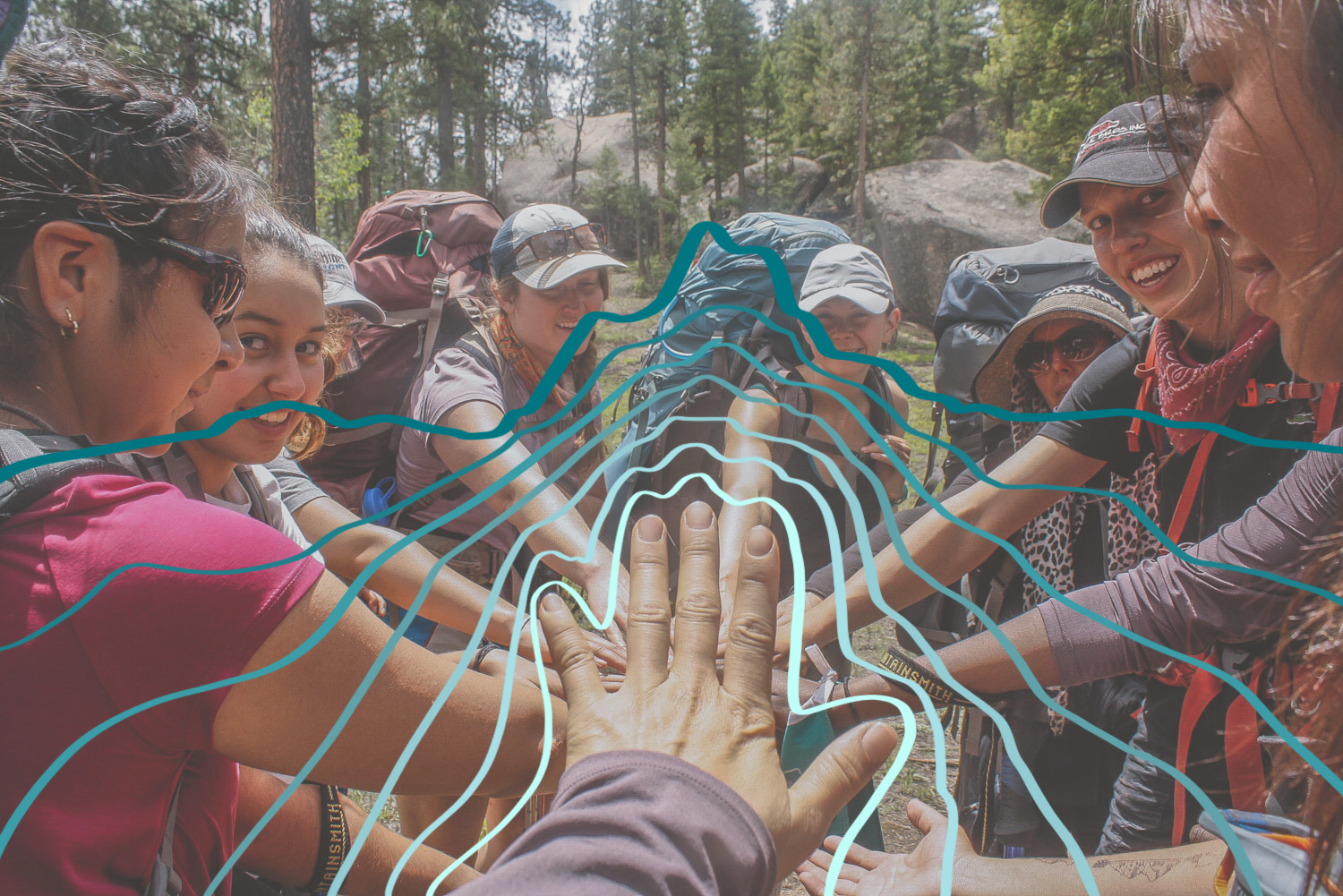
Four Organizations Reaching Out to Make the Outdoors More Attainable
In partnership with Sierra Designs
Words by Gale Straub; Illustrations by Hailey Hirst
For the last few years, gear companies across the outdoor industry have been coming to terms with the fact that while their messaging might say, “the outdoors is for all people,” their expensive gear and less-than-inclusive marketing do not always back that up.
The first step towards progress for companies is acknowledging that they can do better. This year, Sierra Designs is doing just that by getting back to its roots and realigning itself with its initial mission statement of making the outdoors more attainable. Their second step? Supporting the work that’s being done at a community level. Sierra Designs is partnering with four nonprofits and outdoor organizations throughout 2020 that uniquely foster long-term relationships with the outdoors: SheJumps, NatureBridge, Black Girls Trekkin’, and Big City Mountaineers. They’re doing this not just as a one-time monetary donation, but by providing ongoing support and platforms for these organizations to spread their message. We’re proud to be one of these partnering platforms: you’ll hear about these organizations on our podcast, on social media, and right here on the blog.

We had the opportunity to speak with representatives from each amazing nonprofit below to learn more about how they put their missions into action:
SheJumps
Since 2007, SheJumps has created a space for girls and women to try new things outdoors. From the start, they’ve taught girls (age 6+) and women the basics for free or a low cost, so participants are able to take learned skills and apply them on their own.
SheJumps does through a variety of programs. Wild Skills teaches young girls survival and outdoor skills for adventure. There are also outdoor education and social events for adults all over the country, too. You can learn more by checking out their (very full) events calendar.
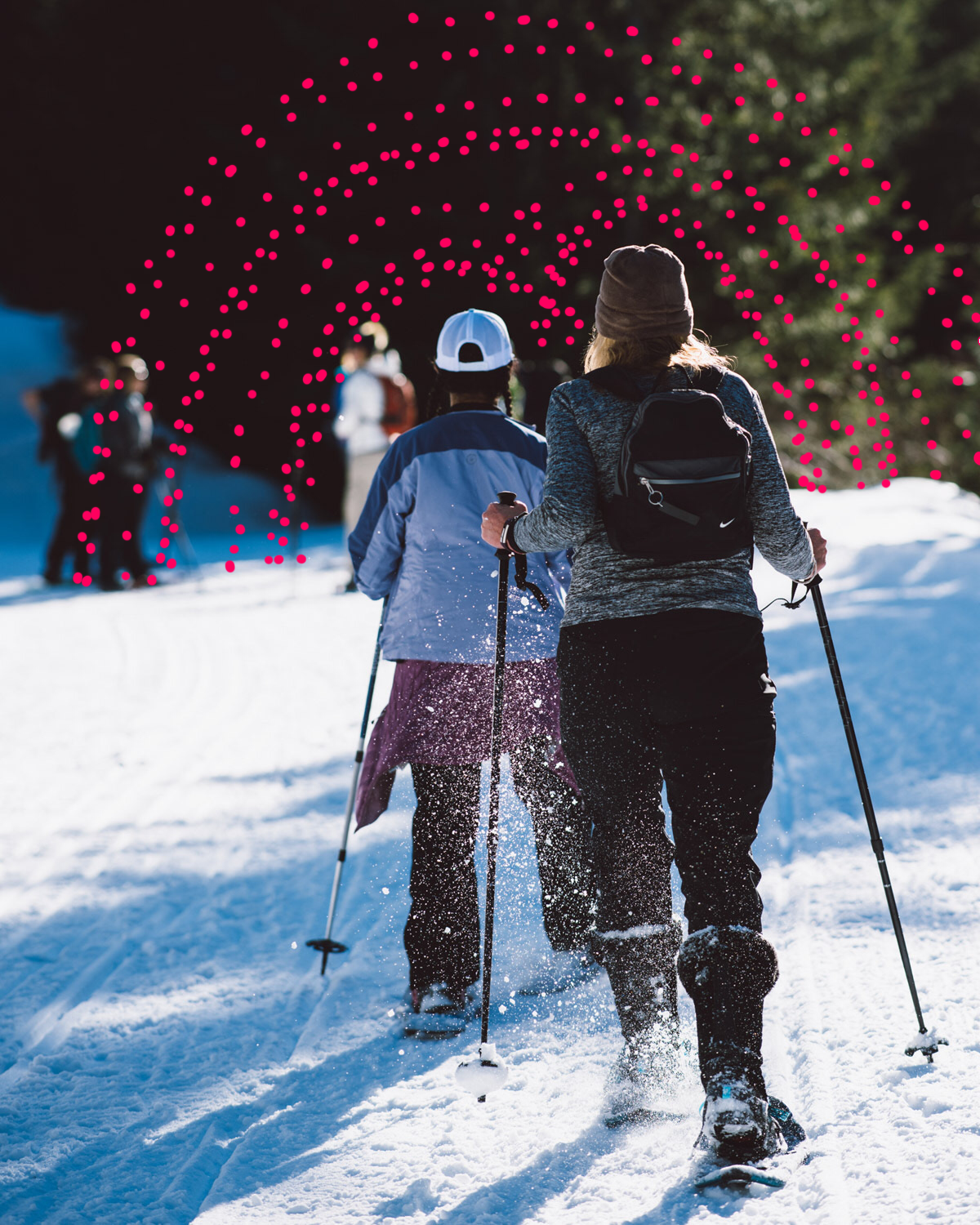
Photo by Ryan French
Today, SheJumps is digging in and discussing how to take the work they’ve already done across the United States and move it “10 steps forward” to remove barriers for people to the outdoors. They’re acknowledging that, for example, just because girls learn how to ski, it doesn’t mean they can afford to go back. It’s an ongoing conversation: at their national summit in October, the organization spent one day with facilitators discussing and learning about diversity, equity, and inclusion (DEI). SheJumps wants to help diversify the outdoors. They know they don’t have all the answers, but they are continually examining how to make their programs more accessible and use their platform to amplify the voices of underrepresented identities.
As they look ahead, they stress that “getting outside doesn’t have to mean climbing to the top of Mount Rainier…sometimes going for a walk needs to be celebrated.” So, SheJumps is continuing to question: “What are we championing? And what programs are we putting out there to reflect that?”
NatureBridge
NatureBridge’s whole goal is to connect young people with the outdoors in order to forge a connection with the natural world. Since its founding as the Yosemite Institute in 1971, NatureBridge estimates around 1.5 million students have passed through their indoor and outdoor classrooms. That’s about the population of San Diego!
Located in Yosemite, Golden Gate National Recreation Area, and Olympic National Park, as well as Washington DC’s Prince William Forest, NatureBridge runs a variety of programs that help execute its mission.
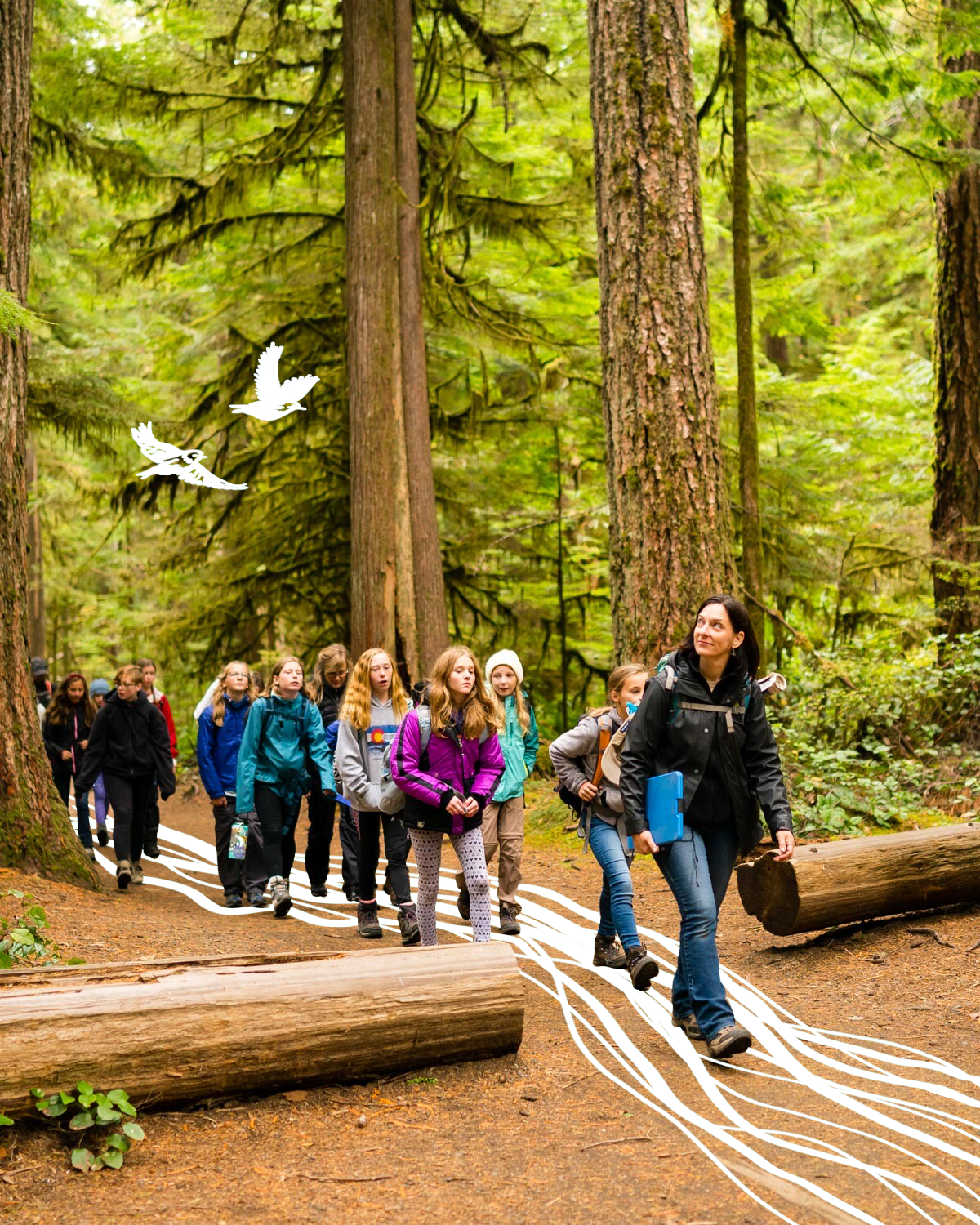
Photo by Stephen Matera
The cornerstone is an environmental science program where schools bring an entire class of students for 3-5 days (including overnights) to spend time in an outdoor classroom with Naturebridge. The class is able to get in the field at a national park and conduct scientific investigations. For the teachers, they see the benefit of kids bonding with each other outside in a way they wouldn’t in other school environments. They also note the exceptional learning experience that occurs in nature.
After hearing about this particular program, I couldn’t help but muse aloud: “I wish I’d had this kind of experience. Science never really stuck for me in school the way it was taught from a textbook.”
My observation is a big reason NatureBridge devotes much of its resources to fundraising: they want more kids to be able to participate in hands-on learning in nature. Their development team’s sole focus is to raise money in order to provide scholarship opportunities for kids. Annually, they give out $1.2M in scholarships and 40% of schools who attend receive some kind of financial support.
“NatureBridge closes the gap between students that have the resources to visit national parks with family, and those that do not. It introduces science careers and national parks to students that otherwise might not experience these things.” —Rachel Barth, Teacher, Incline Middle School
As NatureBridge approaches its 50th anniversary, they hope to continue tracking the long-term effects of the unique science education they provide in the field.
Learn more about NatureBridge ->
Black Girls Trekkin’
Black Girls Trekkin’ co-founder Tiffany Tharpe started hiking five years ago and completed her own 52 Hike Challenge in 2015. Her on-trail experiences were rewarding but she was struck by the lack of people of color (POC) or black women she saw while she was out there. So she started sharing her outdoor adventures on social media in order to connect with others who found a similar calling to nature. Black Girls Trekkin’ was born out of demand: followers wanted to meet up with other hikers. Tiffany, sensing a larger movement brewing, asked her friend Michelle Race to partner on their first group hike in November 2017.
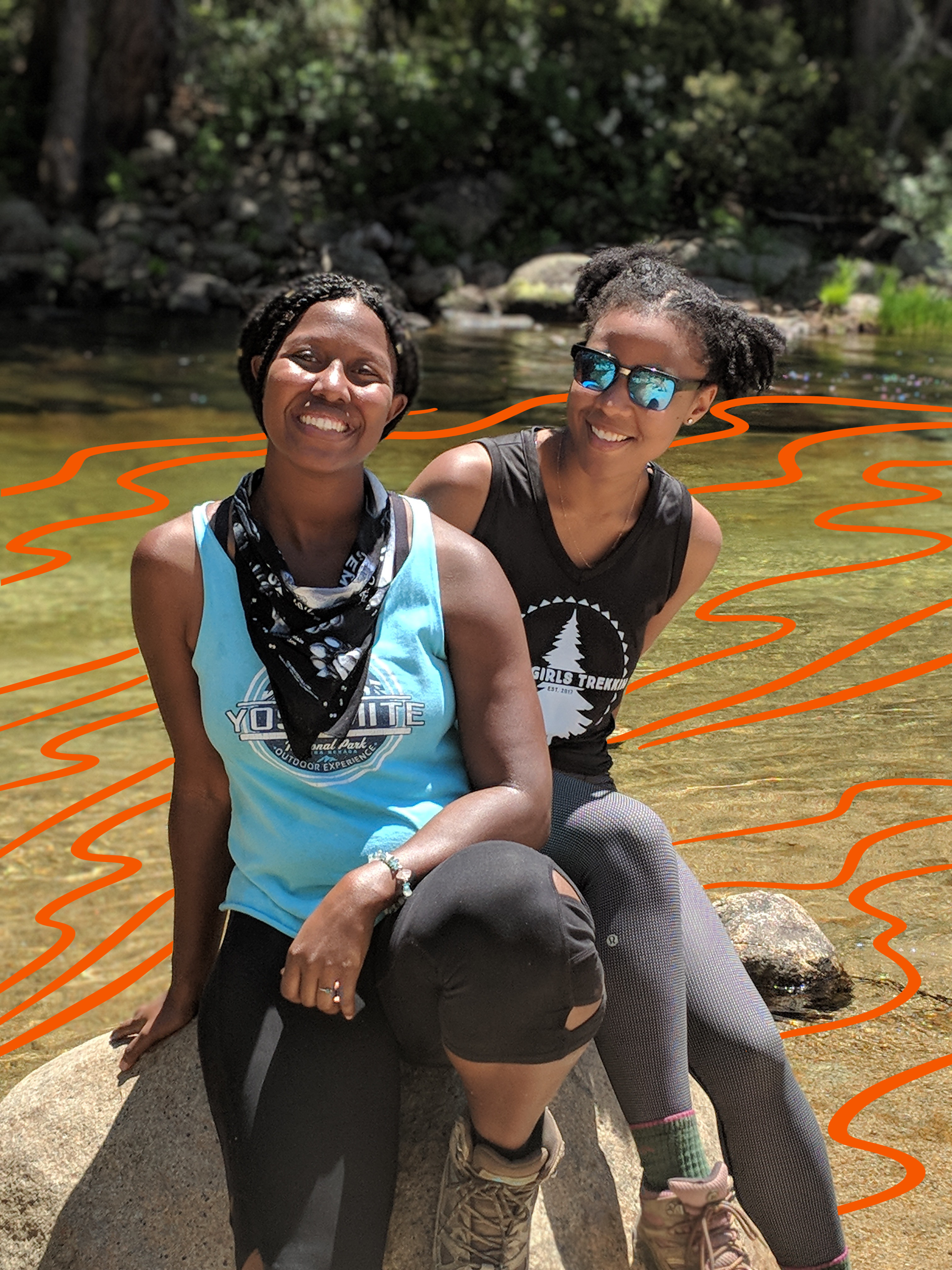
Founders Tiffany and Michelle
Tiffany’s senses were right on, and Black Girls Trekkin’ has been growing their Los Angeles-based group ever since out of the needs and desires of their community. Today, they have almost 9,000 followers on Instagram and are expanding out from group hikes to include other outdoor activities like rock climbing, outdoor yoga, and kayaking.
They’re “thinking big” for 2020, while also keeping one foot on the ground. First, Tiffany and Michelle are hoping to expand Black Girls Trekkin’ by training other hikers to lead events. As leaders and founders, it’s hard to step back but it’s important as they grow so they can focus on bigger initiatives (all while working full-time jobs). They’re also hoping to obtain 501c3 nonprofit status.
Above all, Michelle stresses that Black Girl’s Trekkin’ is all about lifting up other black women in the things they’re passionate about.
Learn more about Black Girls Trekkin’ ->
Big City Mountaineers
Simply put, Big City Mountaineers is dedicated to breaking down barriers to outdoor access through fully outfitted and professionally led backpacking trips for youth – all over the United States. They’re grounded in the belief that everyone should have equitable access to the outdoors for physical and mental health benefits.
Each year, they take out about 1,000 youth from cities like Denver, Miami, Boston, and Seattle on awe-inspiring wilderness trips. And while the “awe” factor can sometimes be interpreted as icing on the cake when learning outdoor skills, Big City Mountaineers sees it as an integral component of their programming.
As an outdoor-loving adult, you can get involved, too. You can volunteer as a mentor – there are typically three mentors on each backpacking trip (as well as one trained instructor). You can also help fundraise by going on an adventure.
Recent studies are reinforcing Big City Mountaineer’s approach. Research shows that a meaningful personal connection to nature in young people has a long tail effect of creating a new generation of environmental stewards. Now, Big City Mountaineers isn’t focused explicitly on creating conversationalists, but they see it as one of many benefits that come from giving kids the opportunity to spend time outdoors.
Learn more about Big City Mountaineers ->
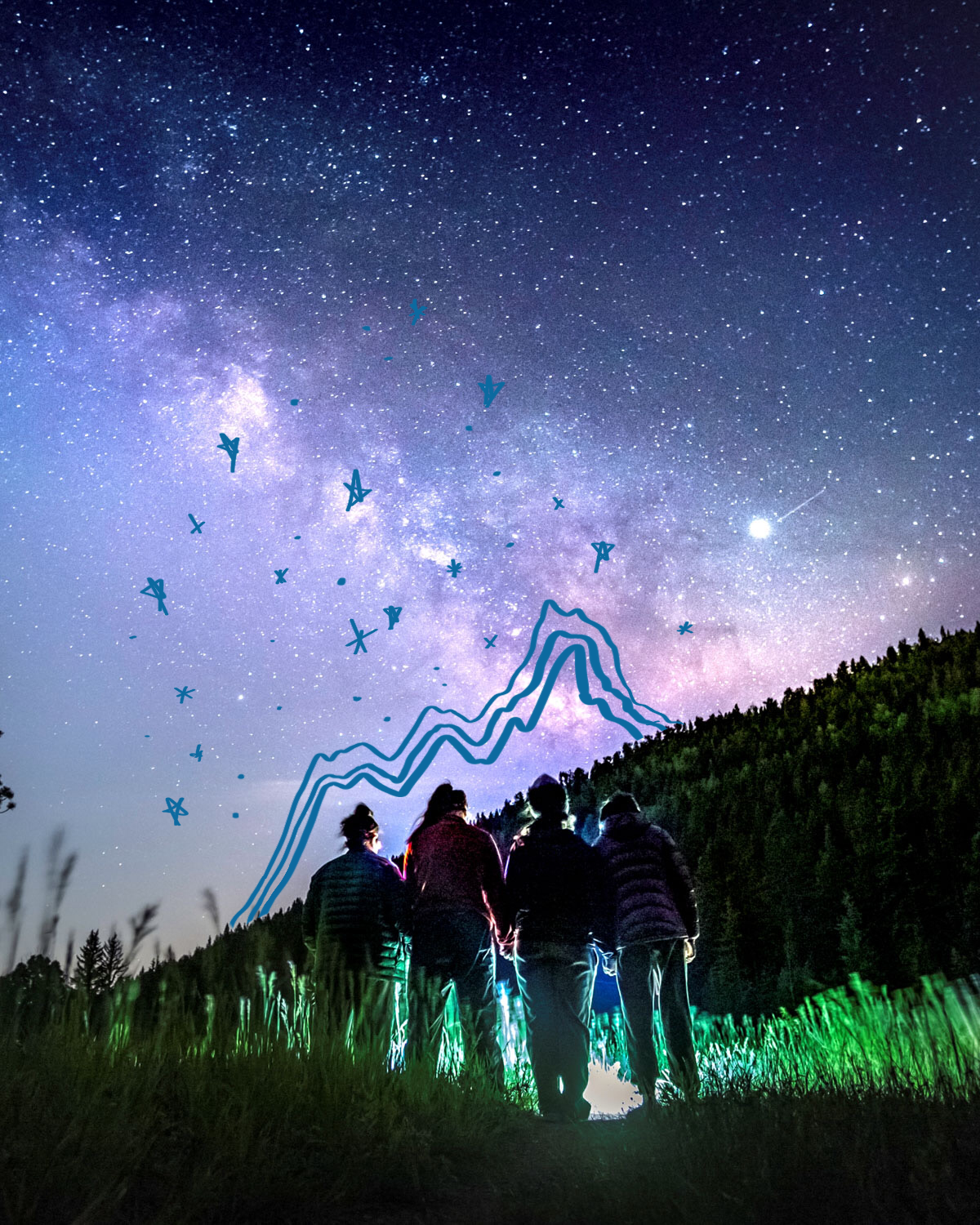
Note: We created this post in partnership with Sierra Designs with inspiration from their Reach Out campaign but our thoughts/words are entirely our own and those of people we interviewed. They’re giving back 1% of profits to these organizations this year to expand opportunities in the outdoors for all. Head to their website to learn more.

What an awesome organization!
I would love to follow you and connect others to your organization.